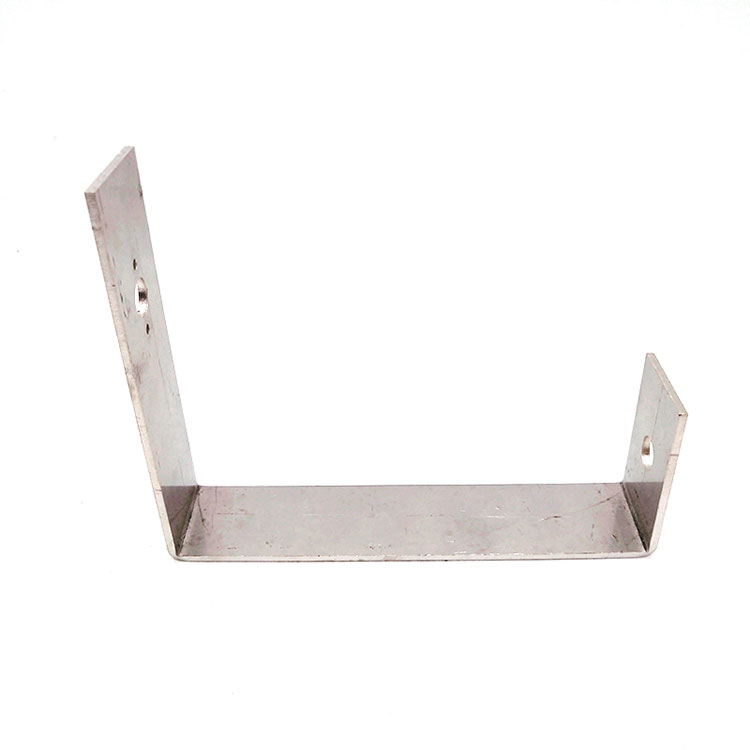Building the Foundation: Exploring Common Materials Used in the Construction of Solar Panel Mount System Roof Hooks
2023-11-24
Introduction:
Behind the seamless integration of solar panels onto rooftops lies a critical component – the solar panel mount system roof hooks. These unassuming yet essential elements play a pivotal role in supporting solar panel installations. In this blog post, we'll delve into the materials commonly employed in the construction of solar panel mount system roof hooks and how these materials contribute to the durability and effectiveness of the entire solar energy system.
1. Aluminum:
Aluminum stands out as a popular choice for constructing solar panel mount system roof hooks due to its exceptional combination of strength and lightness. Its corrosion resistance adds a layer of durability, making it suitable for outdoor applications where exposure to the elements is inevitable. The lightweight nature of aluminum also simplifies the installation process.
2. Stainless Steel:
Renowned for its corrosion resistance and high strength, stainless steel is another prevalent material used in the construction of roof hooks. The alloy's ability to resist rust and withstand harsh environmental conditions makes it a reliable choice for ensuring the long-term stability and safety of solar panel installations.
3. Galvanized Steel:
Galvanized steel, coated with a layer of zinc to protect against corrosion, is a robust material frequently utilized in the construction of roof hooks. This coating enhances the steel's resistance to the elements, making it a resilient choice for solar panel mount systems installed in diverse climates.
4. Plastic or Polymer Composites:
In some instances, roof hooks may incorporate plastic or polymer composite components. These materials offer a lightweight and cost-effective alternative while maintaining adequate strength and durability. Additionally, plastic components can provide insulation against electrical conductivity, enhancing safety in solar panel installations.
5. Anodized Aluminum:
Anodized aluminum is aluminum that has undergone an electrolytic process to create a protective oxide layer on its surface. This layer enhances the material's resistance to corrosion and abrasion, making anodized aluminum a favored choice for roof hooks in regions with challenging weather conditions.
6. Zinc-Coated Steel:
Similar to galvanized steel, zinc-coated steel provides an additional layer of protection against corrosion. The zinc coating acts as a sacrificial layer, preserving the integrity of the underlying steel and ensuring that the roof hooks maintain their structural strength over an extended period.
7. Powder-Coated Finishes:
While not a primary construction material, powder-coated finishes are often applied to metal components, such as aluminum or steel, to enhance their durability and weather resistance. These finishes provide an additional layer of protection against corrosion and contribute to the aesthetics of the roof hooks.
8. Fiberglass Reinforced Plastics (FRP):
Fiberglass reinforced plastics, or composites, may also find application in the construction of roof hooks. FRP offers a high strength-to-weight ratio, corrosion resistance, and electrical insulation properties. This makes it suitable for specific solar panel installations, particularly where weight and insulation are critical considerations.
9. Die-Cast Metals:
Die-cast metals, such as zinc or aluminum alloys, are utilized to create intricate and precisely shaped components for roof hooks. This manufacturing process enables the production of complex designs with high structural integrity, ensuring that roof hooks meet the specific requirements of different roofing types.
Conclusion:
In the world of solar panel mount system roof hooks, the choice of materials is pivotal to the success of solar energy installations. Each material brings its unique set of properties, balancing strength, weight, corrosion resistance, and cost-effectiveness. As solar technology advances, innovations in material science continue to contribute to the development of roof hooks that not only withstand the test of time but also ensure the efficient and sustainable harnessing of solar energy on rooftops around the world.



